第5章 INTRODUCTION(3)
Still, how does it happen that these two different realms do not form one realm, seeing that, while they do not limit each other in their legislation, they continually do so in their effects in the sensible world? The explanation lies in the fact that the concept of nature represents its objects in intuition doubtless, yet not as things in-themselves, but as mere phenomena, whereas the concept of freedom represents in its object what is no doubt a thing-in-itself, but it does not make it intuitable, and further that neither the one nor the other is capable, therefore, of furnishing a theoretical cognition of its object (or even of the thinking subject) as a thing-in-itself, or, as this would be, of the supersensible idea of which has certainly to be introduced as the basis of the possibility of all those objects of experience, although it cannot itself ever be elevated or extended into a cognition.
Our entire cognitive faculty is, therefore, presented with an unbounded, but, also, inaccessible field-the field of the supersensible-in which we seek in vain for a territory, and on which, therefore, we can have no realm for theoretical cognition, be it for concepts of understanding or of reason.This field we must indeed occupy with ideas in the interest as well of the theoretical as the practical employment of reason, but, in connection with the laws arising from the concept of freedom, we cannot procure for these ideas any but practical reality, which, accordingly, fails to advance our theoretical cognition one step towards the supersensible.
Albeit, then, between the realm of the natural concept, as the sensible, and the realm of the concept of freedom, as the supersensible, there is a great gulf fixed, so that it is not possible to pass from the to the latter (by means of the theoretical employment of reason), just as if they were so many separate worlds, the first of which is powerless to exercise influence on the second: still the latter is meant to influence the former-that is to say, the concept of freedom is meant to actualize in the sensible world the end proposed by its laws; and nature must consequently also be capable of being regarded in such a way that in the conformity to law of its form it at least harmonizes with the possibility of the ends to be effectuated in it according to the laws of freedom.There must, therefore, be a ground of the unity of the supersensible that lies at the basis of nature, with what the concept of freedom contains in a practical way, and although the concept of this ground neither theoretically nor practically attains to a knowledge of it, and so has no peculiar realm of its own, still it renders possible the transition from the mode of thought according to the principles of the one to that according to the principles of the other.
III.The Critique of Judgement as a means of connecting the two Parts of Philosophy in a whole.
The critique which deals with what our cognitive faculties are capable of yielding a priori has properly speaking no realm in respect of objects; for it is not a doctrine, its sole business being to investigate whether, having regard to the general bearings of our faculties, a doctrine is possible by their means, and if so, how.
Its field extends to all their pretentions, with a view to confining them within their legitimate bounds.But what is shut out of the division of philosophy may still be admitted as a principal part into the general critique of our faculty of pure cognition, in the event, namely, of its containing principles which are not in themselves available either for theoretical or practical employment.
Concepts of nature contain the ground of all theoretical cognition a priori and rest, as we saw, upon the legislative authority of understanding.The concept of freedom contains the ground of all sensuously unconditioned practical precepts a priori, and rests upon that of reason.Both faculties, therefore, besides their application in point of logical form to principles of whatever origin, have, in addition, their own peculiar jurisdiction in the matter of their content, and so, there being no further (a priori) jurisdiction above them, the division of philosophy into theoretical and practical is justified.
But there is still further in the family of our higher cognitive faculties a middle term between understanding and reason.This is judgement, of which we may reasonably presume by analogy that it may likewise contain, if not a special authority to prescribe laws, still a principle peculiar to itself upon which laws are sought, although one merely subjective a priori.This principle, even if it has no field of objects appropriate to it as its realm, may still have some territory or other with a certain character, for which just this very principle alone may be valid.